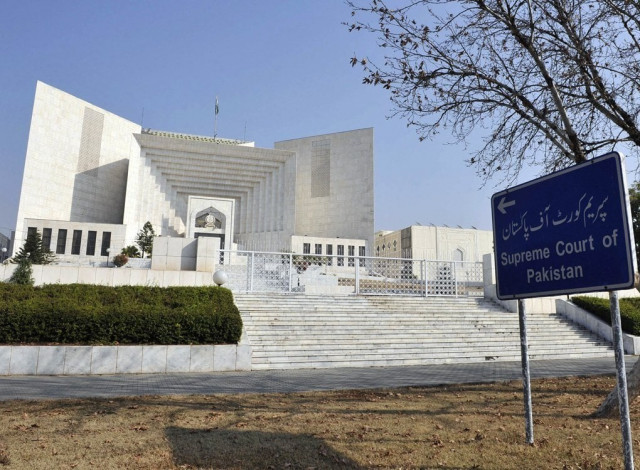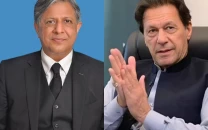‘Upgradation’ and ‘promotion’ not the same: SC
Top court dismisses retired teacher’s appeal against PHC verdict

The Supreme Court has ruled that “upgradation” and “promotion” were not the same as the former was based on a policy decision of the competent authority for its implementation across the board for the particular categories of employees jot down in the scheme or notification.
"There is a meticulous differentiation stuck between upgradation and promotion. Promotion involves advancement in rank, grade or a footstep en route for advancement to [a] higher position whereas the facility or benefit of upgradation simply confers some monetary benefits by granting a higher pay scale to ventilate stagnation," read a judgement authored by Justice Muhammad Ali Mazhar.
A three-judge bench of the apex court, led by Chief Justice Gulzar Ahmed, heard an appeal against a Peshawar High Court judgment.
"In an upgradation, the candidate continues to hold the same post without any change in his duties but he is accorded a higher pay scale. It is also well settled exposition of law that the benefit of upgradation is normally granted to the persons stuck-up in one pay-scale for a considerable period of their length of service either having no venue for promotion or progression,” the verdict read.
Read SC maintains dismissal of cop over ‘wilful’ absence
The apex court also observed that to minimise the anguish or suffering being stuck up in the particular pay scale for a sizeable period, the mechanism of upgradation as a policy decision comes in the field for redress and rescue.
The court referred to its 2016 judgment wherein it was held that the expression upgradation was distinct from promotion, which was neither defined in the Civil Servants Act, nor in the Rules framed thereunder which was restricted to the posts and not with the person occupying it.
The appellant was appointed as a certificate of teaching teacher (BPS-9) on September 15, 1987. He was promoted to the post of a secondary school teacher (BPS-16) on July 24, 2003. He reached the age of superannuation on May 4, 2016, after qualifying 29 years of service and his pension was calculated on the basis of his last pay in BPS-16.
The appellant lodged his grievance that he was not accorded the benefit of the notification dated January 1, 2008 issued by the Khyber-Pakhtunkhwa government whereby upgradation was allowed to secondary school teachers on completing 10 years of service.
The court said that it was clearly emanating from the notification dated January 26, 2008 that it was not an open-ended or without any cut-off date decision but the upgradation scheme of the incumbents was made effective from October 1, 2007.
Read SC dismisses pleas on presidential system
That meant that in the case of appellant at least 10 years of service was required in BPS-16 for upgradation to BPS-17 from October 1, 2007 and since his length of service was not commensurate to the stipulated conditions hence he was not considered for upgradation.
"The learned counsel for the appellant candidly admitted that length of service of the appellant was less than 10 years in BPS-16 at the time of notification issued for upgradation. In the wake of the above discussion, we do not find any justification for interference in the impugned judgment. The appeal is dismissed.”



















COMMENTS
Comments are moderated and generally will be posted if they are on-topic and not abusive.
For more information, please see our Comments FAQ